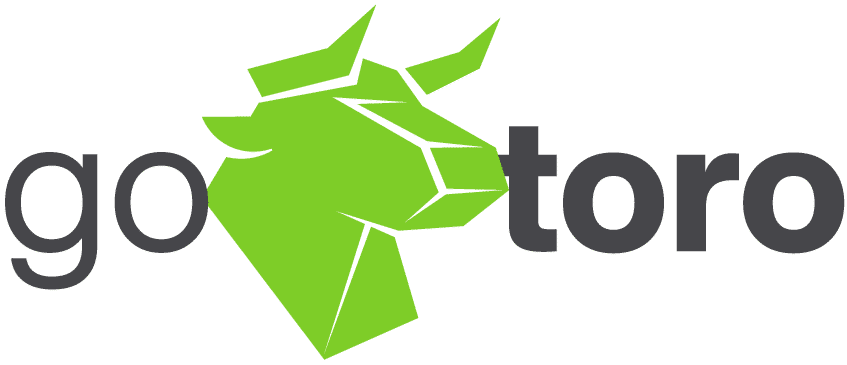In today’s rapidly evolving educational landscape, education recruitment has become more critical than ever. School districts across the country are facing unprecedented challenges in attracting and retaining top talent. The ability to recruit skilled educators directly impacts the quality of education students receive, making it essential for school districts to adopt modern recruitment strategies.
As the demands on educators continue to grow, so too does the need for innovative approaches to hiring. Traditional methods are no longer sufficient in addressing the complex needs of today’s schools. This blog will explore the importance of recruiting high-quality educators, the shifting landscape of education recruitment, and the strategies school districts can implement to overcome these challenges.
The Importance of Education Recruitment for School Systems and Districts

Ensures a High-Quality Education for Students
At the heart of hiring is the goal of providing students with a high-quality education. Talented educators are the backbone of any successful school system, and their ability to engage and inspire students directly influences academic outcomes. By prioritizing education recruitment, school districts can ensure that they are bringing in teachers who are not only knowledgeable but also passionate about fostering student growth.
Attracts Talented Educators and Staff to the District
Effective hiring strategies help school districts stand out as desirable places to work, attracting talented educators and staff who are committed to making a difference. In a competitive job market, where teacher shortages are becoming increasingly common, the ability to draw in top talent is crucial. By emphasizing the district’s strengths and offering competitive benefits, school systems can build a workforce that is both skilled and motivated.
Supports Student Achievement and Overall School Performance
The success of education recruitment is closely tied to student achievement and overall school performance. When districts are able to recruit and retain high-caliber educators, it creates a stable and supportive learning environment. This stability, in turn, leads to better student outcomes, higher graduation rates, and a stronger reputation for the district as a whole. Investing in education recruitment is an investment in the future success of students and schools alike.
Builds a Positive School Culture and Community
A well-executed recruitment strategy also plays a significant role in building a positive school culture and community. Educators who are a good fit for the district’s values and mission contribute to a cohesive and collaborative atmosphere. This sense of community not only enhances the working environment for staff but also fosters a supportive and inclusive space for students. By focusing on recruitment, districts can cultivate a culture that promotes both professional satisfaction and student well-being.
The Shift Towards Digital Education Recruitment Methods
The landscape of education recruitment has evolved significantly in recent years, with a major shift towards digital recruitment methods. Traditional approaches, such as job fairs and newspaper ads, have been supplemented or even replaced by online platforms, social media, and virtual job fairs. This digital transformation has enabled school districts to reach a wider audience and connect with potential candidates more efficiently. By leveraging these digital tools, districts can streamline the recruitment process and attract educators who are well-versed in modern technologies.
Greater Emphasis on Diversity and Inclusion in Education Recruitment
In recent years, there has been a growing emphasis on diversity and inclusion within education recruitment. School districts are increasingly prioritizing the recruitment of educators from diverse backgrounds to better reflect the student populations they serve. This focus on inclusivity not only enriches the educational environment but also helps address systemic inequalities in education. Modern strategies are designed to attract a diverse pool of candidates, ensuring that all students have access to role models who understand and represent their experiences.
Increased Competition for Top Talent Due to Teacher Shortages
The current education recruitment landscape is marked by intense competition for top talent, driven by widespread teacher shortages. Many districts are struggling to fill critical positions, particularly in high-demand areas such as STEM, special education, and bilingual education. This increased competition has forced school systems to rethink their recruitment strategies, offering more competitive salaries, benefits, and professional development opportunities to attract the best educators. As the demand for skilled teachers continues to rise, districts must stay ahead of the curve in their efforts.
Impact of Economic Factors on Education Recruitment
Economic factors, such as funding cuts and changes in benefits, have had a profound impact on education recruitment. Many school districts are facing budget constraints that limit their ability to offer competitive compensation packages, making it more difficult to attract and retain top educators. Additionally, changes in retirement benefits and healthcare coverage have made the teaching profession less appealing to potential candidates. To counter these challenges, districts need to get creative with their hiring strategies, finding ways to offer non-monetary incentives and foster a supportive work environment.
Challenges in Education Recruitment for the Upcoming School Year

Addressing Teacher Shortages and High Turnover Rates in Education Recruitment
One of the most pressing challenges in education hiring is addressing teacher shortages and high turnover rates. On average, 23% of teachers left their school in the 2022-23 school year—a much higher percentage than pandemic rates, but a slight decrease from last year’s turnover spike” (Education Resource Strategies, 2024). Many districts are grappling with a lack of qualified candidates to fill open positions, leading to larger class sizes and a decline in educational quality. Additionally, high turnover rates exacerbate these shortages, as experienced educators leave the profession due to burnout, inadequate support, or better opportunities elsewhere. To combat this, districts must develop robust recruitment strategies that focus on both attracting new talent and retaining current staff.
Attracting Candidates to Rural or Underfunded Areas
Another significant challenge in education recruitment is attracting candidates to rural or underfunded areas. Schools serving the greatest proportion of students experiencing poverty lost 29% of their teachers between October 2022 and October 2023, while schools with the lowest concentration of need lost 19% (Education Resource Strategies, 2024). These districts often struggle to compete with urban or wealthier school systems that can offer higher salaries, better resources, and more opportunities for professional growth. Rural districts, in particular, may find it difficult to draw educators who are hesitant to relocate to less populated areas. To overcome this hurdle, education recruitment efforts in these regions must highlight the unique benefits of teaching in rural communities, such as a close-knit environment and opportunities for leadership roles.
Balancing Remote and In-Person Teaching Needs in Education Recruitment
The ongoing shift between remote and in-person teaching presents another challenge for hiring in education. Educators today must be adaptable, comfortable with technology, and able to deliver high-quality instruction in both environments. This dual demand can make it more difficult to find candidates who are equipped to handle the complexities of modern teaching. Effective recruitment strategies must therefore prioritize candidates who demonstrate flexibility and proficiency in both remote and traditional classroom settings.
Adapting to Changing Educational Standards and Technology in Education Recruitment
The rapid pace of change in educational standards and technology adds another layer of complexity to education hiring. As new curricula, assessment methods, and digital tools are introduced, educators must continuously update their skills to stay relevant. This ongoing adaptation can be daunting for some, particularly those who are less comfortable with change. Successful recruitment strategies must identify and attract educators who are not only open to these changes but are also eager to embrace new teaching methods and technologies.
Ensuring Safety and Wellness in the School Environment Through Education Recruitment
Ensuring the safety and wellness of students and staff is a top priority for school districts, and it plays a crucial role in education recruitment. The recent focus on mental health, along with the lingering effects of the COVID-19 pandemic, has made it essential for districts to recruit educators who are not only skilled in their subject areas but also committed to fostering a safe and supportive school environment. Recruitment efforts should emphasize the importance of candidates who are trained in health and safety protocols and who prioritize the well-being of their students and colleagues.
AI and Data Analytics in Education Recruitment
In the modern landscape of recruitment, AI and data analytics are revolutionizing how school districts identify and select the best candidates. By leveraging AI tools, districts can analyze vast amounts of data to pinpoint key characteristics of successful educators, streamline the screening process, and even predict which candidates are most likely to thrive in specific roles. This data-driven approach to education recruitment ensures that school systems can make more informed hiring decisions, ultimately leading to a stronger and more effective educational workforce.
Virtual Job Fairs in Education Recruitment
The advent of virtual job fairs has transformed education recruitment, allowing districts to reach a broader audience of potential candidates without the constraints of geographical boundaries. These online platforms provide an accessible and efficient way for educators and school districts to connect, offering virtual booths, live chat features, and video interviews. Through virtual job fairs, hiring becomes a more dynamic and inclusive process, enabling districts to attract top talent from across the country or even globally.
Automated Application Systems in Education Recruitment
Automated application systems have become a cornerstone of modern education recruitment strategies. These systems simplify the application process for both candidates and recruiters by automating routine tasks such as resume screening, interview scheduling, and candidate tracking. This efficiency not only saves time but also reduces the potential for human error, ensuring that no qualified candidate is overlooked. By integrating automated systems into their processes, districts can enhance the overall candidate experience and attract a higher caliber of educators.
Components of an Excellent Educator

Strong Subject Matter Knowledge and Teaching Skills
When it comes to education recruitment, one of the most critical components is identifying educators with strong subject matter knowledge and teaching skills. These educators have a deep understanding of the content they teach and are able to convey complex concepts in a way that is accessible and engaging for students. In the context of recruitment, finding candidates with this expertise is essential for maintaining high academic standards and fostering a productive learning environment.
Ability to Engage and Inspire Students in Education Recruitment
An excellent educator must possess the ability to engage and inspire students. These educators go beyond delivering content; they create an interactive and stimulating classroom environment that encourages students to explore, question, and think critically. In education recruitment, identifying candidates who demonstrate this ability is crucial for ensuring that students remain motivated and invested in their learning.
Effective Classroom Management and Communication Skills
Effective classroom management and communication skills are indispensable qualities in education. Educators who excel in these areas can maintain order, create a positive classroom atmosphere, and communicate effectively with both students and parents. These skills are particularly important in diverse and dynamic educational settings, making them a top priority in education recruitment efforts.
Adaptability to New Teaching Methods and Technologies
As education continues to evolve, adaptability to new teaching methods and technologies is increasingly valued in education recruitment. Educators who can seamlessly integrate innovative teaching tools and adapt to new curricula are better equipped to meet the needs of modern students. In Districts should prioritize candidates who demonstrate a willingness to embrace change and continually improve their teaching practices.
Commitment to Continuous Professional Development in Education Recruitment
A commitment to continuous professional development is a hallmark of an excellent educator. Educators who are dedicated to lifelong learning are more likely to stay current with the latest educational trends, pedagogical techniques, and technological advancements. By focusing on recruitment strategies that attract these committed professionals, school districts can ensure that their teaching staff remains at the forefront of educational excellence.
The Difficulty in Finding Qualified Educators in Education Recruitment
Stringent Certification and Qualification Requirements
One of the significant challenges in education recruitment is the stringent certification and qualification requirements that educators must meet. These requirements, while essential for maintaining high standards, can also limit the pool of available candidates. In education recruitment, districts often struggle to find candidates who possess the necessary certifications and qualifications, particularly in specialized fields such as special education or STEM.
Competition with Private Sector and Other Regions in Education Recruitment
The competition with the private sector and other regions offering better compensation is another hurdle in education recruitment. Many educators are drawn to higher-paying opportunities outside of public education, whether in private schools or entirely different industries. This competition makes it difficult for school districts, especially those with limited budgets, to attract and retain top talent. Effective education recruitment strategies must address this challenge by offering competitive benefits and showcasing the non-monetary advantages of working in education.
Declining Interest in the Teaching Profession in Education Recruitment
A growing concern in education recruitment is the declining interest in the teaching profession among new graduates. Factors such as low pay, high stress, and lack of support have contributed to a decrease in the number of individuals entering the teaching field. This trend has made education recruitment increasingly challenging, as districts must work harder to attract candidates to a profession that is often perceived as undervalued.
Need for Specialized Skills in Education Recruitment
The need for specialized skills, such as those required in special education, STEM, and bilingual education, further complicates education recruitment. These areas often have a shortage of qualified educators, making it difficult for districts to fill these critical roles. In education recruitment, there is a growing need to develop targeted strategies that attract educators with these specialized skills, ensuring that all students have access to the expertise they need to succeed.
Retention Strategies in Education Recruitment

Mentorship Programs in Education Hiring
A crucial aspect of education recruitment is not just attracting new talent but also ensuring that these educators are well-supported once they join the school system. Within the analyzed time period, 30% of rookie teachers left their school (Education Resource Strategies, 2024). Mentorship programs play a vital role in helping new educators adapt and thrive in their roles. By pairing experienced teachers with newcomers, school districts can provide guidance, reduce the learning curve, and create a sense of community. Implementing effective mentorship programs as part of your education recruitment strategy not only helps retain new hires but also fosters a collaborative and supportive educational environment.
Professional Development in Education Recruitment
Offering continuous professional development opportunities is essential for retaining top talent in education recruitment. Educators who have access to ongoing training and growth opportunities are more likely to stay committed to their roles and contribute positively to the school community. By integrating professional development into your education hiring strategy, you can demonstrate your district’s commitment to the growth and advancement of its educators, making it a more attractive place to work.
Promoting Work-Life Balance in Education Hiring
Work-life balance has become a critical factor in education recruitment, especially as educators face increasing demands on their time and energy. Promoting policies that support the well-being of educators, such as flexible working hours, mental health support, and manageable workloads, can significantly reduce burnout and turnover rates. Incorporating these considerations into your education recruitment strategy will help attract and retain educators who are not only skilled but also motivated and engaged in their work.
Omni-Channel Approach to Education Recruitment
Leveraging Social Media in Education Hiring
In today’s digital age, an omni-channel approach to education recruitment is essential for reaching a diverse pool of candidates. Social media platforms such as LinkedIn, Twitter, and Facebook offer powerful tools for engaging potential educators and showcasing your district’s unique strengths. By creating targeted campaigns and sharing success stories, school districts can build a strong online presence that attracts top talent. Leveraging social media in education recruitment allows you to connect with candidates where they are most active and engaged.
Utilizing Online Job Portals and School Websites in Education Recruitment
Online job portals and school websites are critical components of an effective education recruitment strategy. These platforms provide a centralized location for job postings, application processes, and detailed information about your district’s culture and values. By optimizing these online resources, you can ensure that your education recruitment efforts are accessible and appealing to a wide range of potential candidates. This approach not only streamlines the recruitment process but also enhances the overall candidate experience.
Offering Incentives in Education Recruitment
In a competitive education recruitment landscape, offering incentives such as signing bonuses, relocation assistance, and other benefits can make your district stand out. These incentives can be particularly effective in attracting candidates to hard-to-fill positions or less desirable locations. By highlighting these offers in your education recruitment communications, you can increase the likelihood of attracting top educators who might otherwise overlook your district.
Promoting District Culture and Employer Brand in Education Recruitment
Building a strong employer brand is a key element of education recruitment. School districts that effectively promote their culture, values, and success stories are more likely to attract educators who align with their mission. By developing and communicating a clear and compelling employer brand, you can differentiate your district in the competitive education recruitment market. Highlighting your district’s achievements, community involvement, and commitment to student success will resonate with educators seeking a meaningful and impactful career.
Conclusion: Strengthening Education Recruitment for the Future
In conclusion, modernizing your education recruitment strategies is essential for attracting and retaining top educators in today’s competitive landscape. By embracing technology, focusing on retention through mentorship and professional development, and adopting an omni-channel approach, school districts can build a strong and effective educational workforce. To see how Gotoro can help you enhance your education recruitment efforts, request a demo today and take the first step towards a brighter future for your district.


